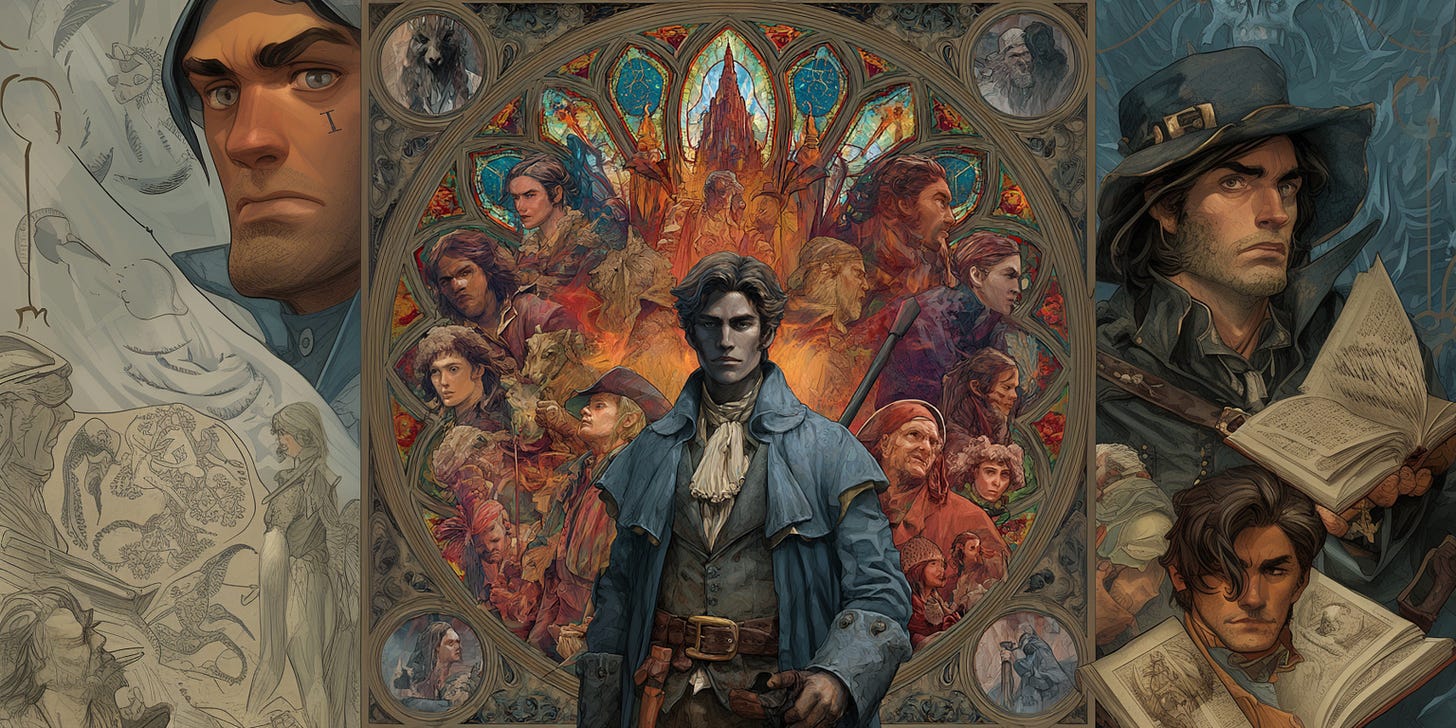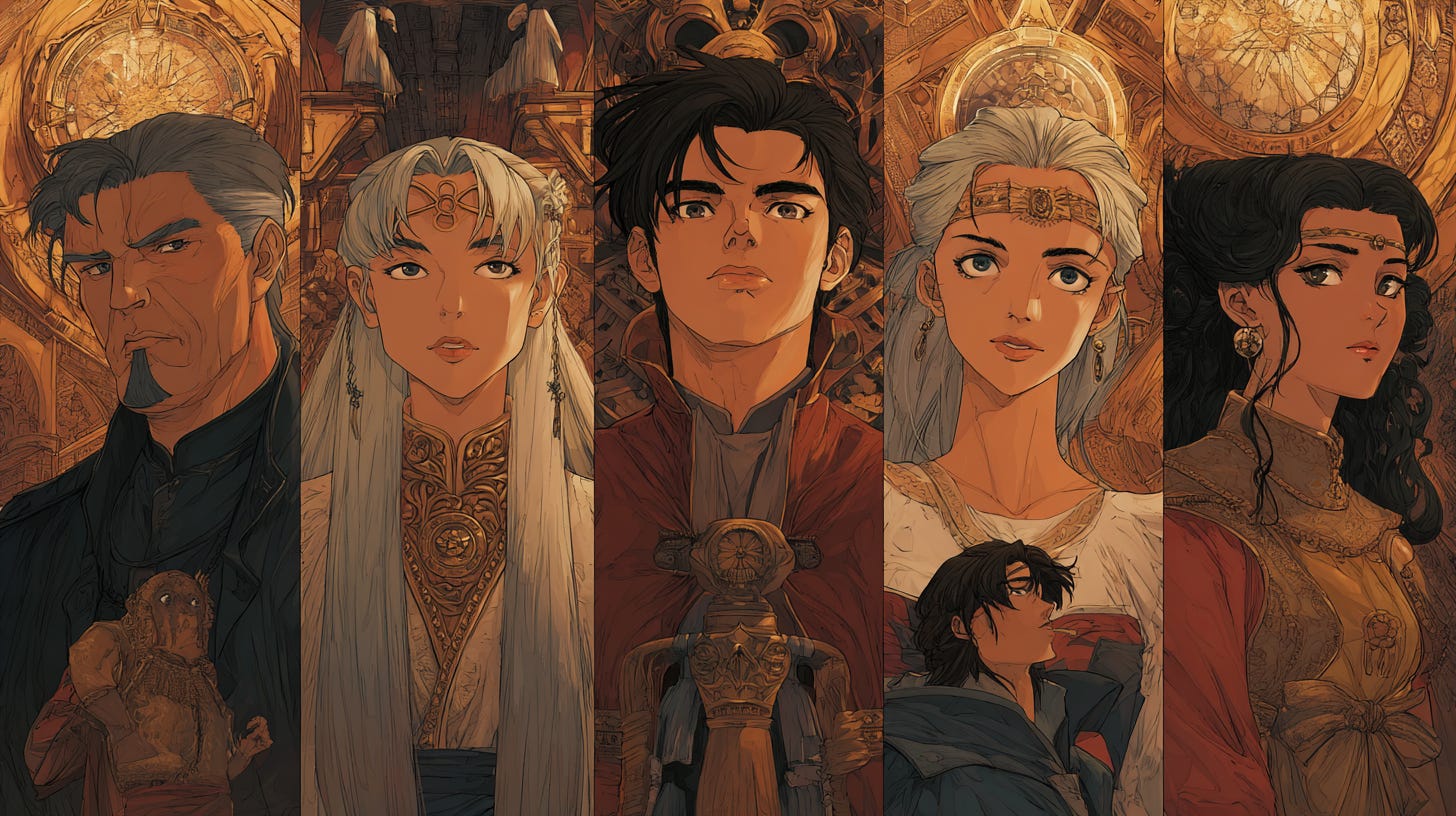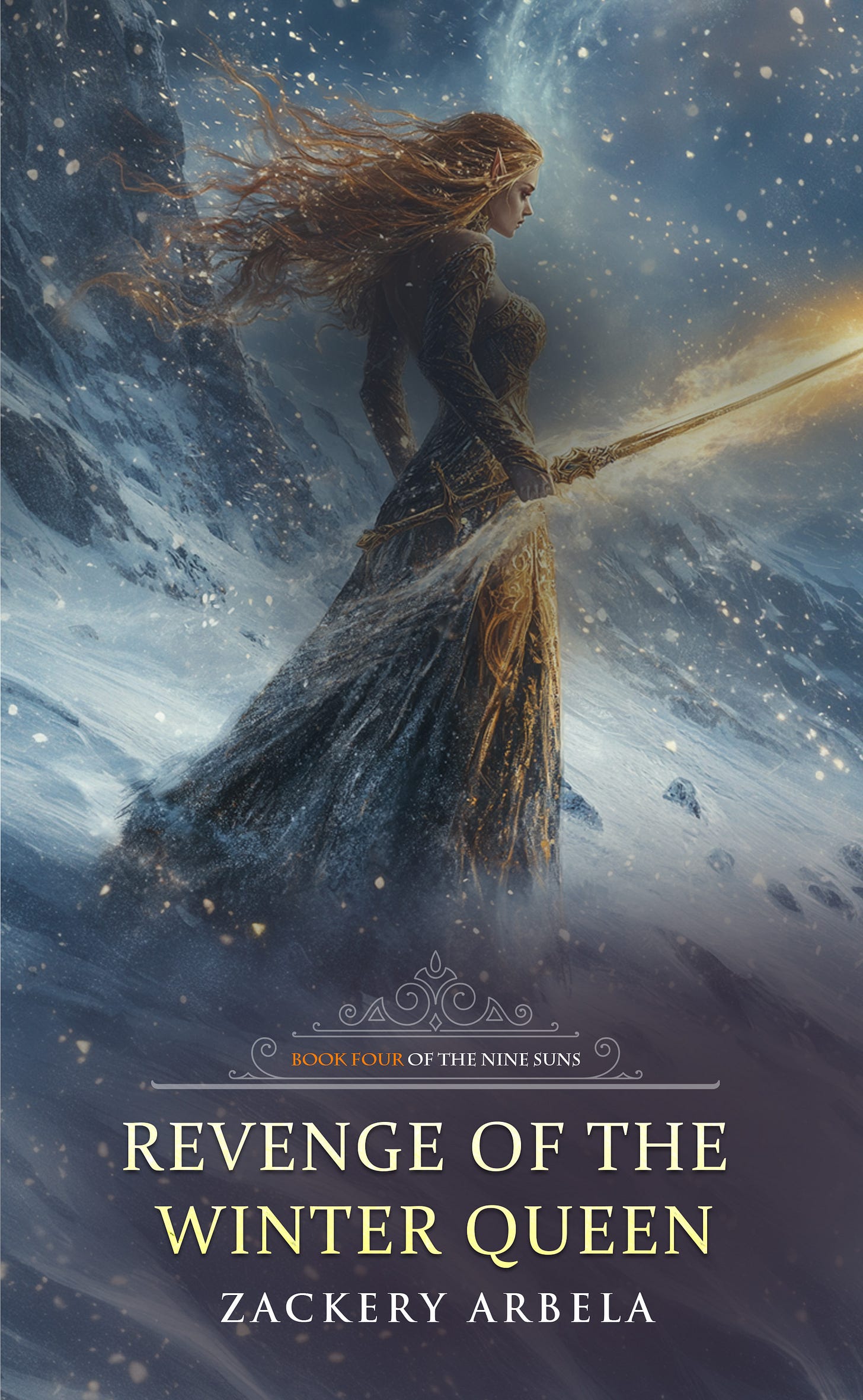Random thoughts on The Wheel of Time
A retrospective
I won’t say much about TV series on Amazon, which has thankfully been canceled and consigned to the endless purgatory wherein bad fantasy book adaptions are consigned and forgotten (looking at you, Shannara Chronicles.) Suffice to say I thought it was awful. If you read any of my previous work, you’ll know that I think adapting any kind of fantasy that is not even partially set in the real world is tall order and best, and an invitation to cringe more often than not. Wheel of Time on Amazon was certainly an example of the latter...enough! It is done. Let it be forgotten.
That being said, The Wheel of Time books remain a real achievement and an important milestone in the development of the fantasy genre. If anyone deserves the title of the American Tolkien, it is James Oliver Rigney Jr. of Charleston, SC, better known by his pen name Robert Jordan. There is a whole generation of writers coming up since the 90’s who found this a gateway into the fantasy genre. I was thirteen (or maybe fourteen?) when I cracked open the Eye of the World, the first book in the series, and it was like falling into an enchanted pool out of an old Celtic myth that also served as a magical portal to another world where all kinds of interesting things happen, and I didn't come up for air for many days after. Given that my actual life at the time was less than ideal, the appeal was obvious.
In short, WOT was awesome. I won't write down a summary of the series because:
a) its fourteen books long, fifteen if you count the prequel
b) if you’re reading this blog, you probably already know what it is. If you don’t Wikipedia has a decent summary here.
Wheel of Time is perhaps the best example within the last fifty years of what an epic fantasy can do. It came about before the Grimdark Revolution sparked by A Song of Ice and Fire, and it is decidedly old-school in its approach. There is a Chosen One, a plucky of band of heroes around it, and a great and terrible evil that must be defeated, and a vast, richly detailed and utterly believable setting in which it takes place. The system of magic is detailed (sometimes excessively) so and well thought out. Most interesting of all, WOT takes the concepts of gender seriously. Male and female mean something in this world, the One Power that lies at the heart of it is divided between male and female halves, with the conflict and attraction between them mirrored in the relationships and dynamics between the male and female characters. In the hands of a lesser writer, this concept could run the risk of being regressive. Robert Jordan puts it at the heart of the story, and makes the whole thing dance. (This was the first thing the makers of the TV show ditched when they began their march to adaptational ruin.) The characters were vivid and memorable – my personal favorite is Mat, the rogue and scamp, and though no fault of his own, the greatest military genius of his time.
That being said, WOT is not perfect. If ASOIAF’s great weakness is that new volumes are slow in coming, with WOT it the exact opposite. Robert Jordan was a writing machine, cracking out a new installment in the series every year, until illness took him from us far too soon. But after A Crown of Swords (book 7 of the series) it all starts to bog down. The pacing of the narrative slows to a crawl. Multiple chapters are wasted on secondary and tertiary characters who really don’t contribute anything to the broader story (like Cadsuane, for example. I don’t the point of that character. Or seemingly endless descriptions of the internal politics of the White Tower....who cares?) One gets the impression that Jordan is spinning his wheels. I think by that point the series has fallen into one of the great traps of epic fantasy – it got too big for its own good. Too many minor characters, too many subplots, drawing attention away from the main narrative (Faile’s kidnapping by the Shaido is a good example. That could have been wrapped up in a few chapters, instead of being stretched out over three books).
Let me clear – the series remains a good read despite all this. There is something in every book that I like, even in the latter third of the series where things slow to a crawl. And Brandon Sanderson does an excellent job in taking up where Robert Jordan left off after he died, and brought the series to a satisfying conclusion, with a delightful surprise at the end (and no, I will not spoil it. Go read the books if you haven’t ready!)
Despite the damage done by the failure of the TV show, I think The Wheel of Time will remain vital on the fantasy landscape, because it offers an alternative to the two dominant trends in 21st-century fantasy: the nihilism of grimdark and the intimacy-focused, romance-heavy narratives of romantasy. Jordan’s world is not free of darkness or moral ambiguity, but it is fundamentally a story of hope, redemption, and the belief that individuals can change the course of history for the better. Its tone is rooted in the glory of classic epic fantasy, celebrating heroism, sacrifice, and the enduring struggle between Light and Shadow. The Wheel turns in the end, and hopefully we will see more of its like in the future.
Anyway, that's all I got for now.
Shameless book plug:





